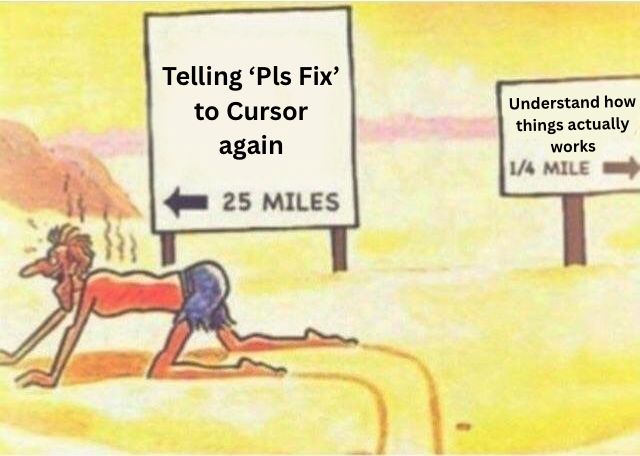Vibe Coding: Software Development with AI
Imagine explaining your app idea in plain English and watching it come to life as code without ever typing a single line. That’s the essence of vibe coding, a creative approach to software development that’s capturing attention in 2025. Coined by AI visionary Andrej Karpathy in February of this year, vibe coding lets anyone programmer or not build software by simply chatting with an AI. It’s less about syntax and more about ideas, making it a game-changer for creativity and speed.
Behind the Magic
So, how does it work? You tell an AI tool, like Cursor Composer or GitHub Copilot, what you need say, “build a tool to track my daily tasks.” The AI, powered by advanced language models, translates your words into functional code. From there, you tweak it through conversation: “add a reminder feature” or “fix that bug.” It’s an iterative dance where you guide the AI until the result matches your vision. Think of it like shaping software with words instead of carving with a chisel.
Why It’s Exciting and a Little Scary
The upside is clear: vibe coding opens the door for non-coders to create apps, reducing the time from concept to prototype. Picture a small business owner whipping up a custom inventory tracker in an afternoon. Reddit threads in r/programming buzz with stories of hobbyists building games or tools in hours, not weeks. Yet, there’s a flip side. The code can be messy prone to errors, security gaps, or just plain hard to maintain. Some Redditors warn it’s like handing a novice a loaded toolbox: powerful, but risky if you don’t know what’s under the hood.
Reddit’s Take: A Mixed Bag of Hype and Caution
Digging into Reddit, the vibe coding chatter is lively. In r/technology, users praise its potential to democratize tech, with one commenter noting, “It’s like giving everyone a superpower suddenly, ideas aren’t stuck in your head.” But in r/coding, skepticism creeps in. A thread titled “Vibe Coding: Cool or Chaos?” debates its reliability, with a top comment quipping, “Great for a weekend project, terrible for anything your boss might see.” The consensus? It’s a prototyping dream, but don’t bet your startup on it yet.
Tools Powering the Trend
The tools driving vibe coding are already household names in tech circles. Cursor Composer boasts thousands of users churning out projects, while GitHub Copilot’s million-plus adopters hint at its staying power. Replit Agent’s community adds another layer, letting users experiment in real-time. Reddit posts often mention these alongside newer players like Windsurf, showing a toolbox that’s growing as fast as the trend itself.
Where It Shines and Stumbles
Vibe coding thrives in low-pressure settings think personal apps or proof-of-concepts. A Redditor in r/learnprogramming shared how they built a simple calorie counter in a day, calling it “mind-blowing for a newbie.” But for big, complex systems? The jury’s out. Concerns about hidden bugs or “technical debt” a term for future headaches pop up often. One user in r/softwaredevelopment summed it up: “It’s a shortcut, not a foundation.”
Looking Ahead: A New Era of Coding?
What’s next for vibe coding? If Reddit’s speculation holds, we might see smarter AI that catches its own mistakes, making it safer for serious use. Some predict a future where “natural language programmers” are as common as today’s coders, echoing how typing skills once went mainstream. For now, it’s a tool for tinkerers and trailblazers, not a replacement for traditional coding.
Final Thoughts
Vibe coding is a bold leap empowering, messy, and full of potential. It’s not about perfect code; it’s about getting ideas out fast and refining them later. As one r/programming user put it, “It’s coding with training wheels awesome until you hit a hill.” Whether you’re a curious beginner or a seasoned dev, it’s worth a spin just don’t forget to peek under the hood.





